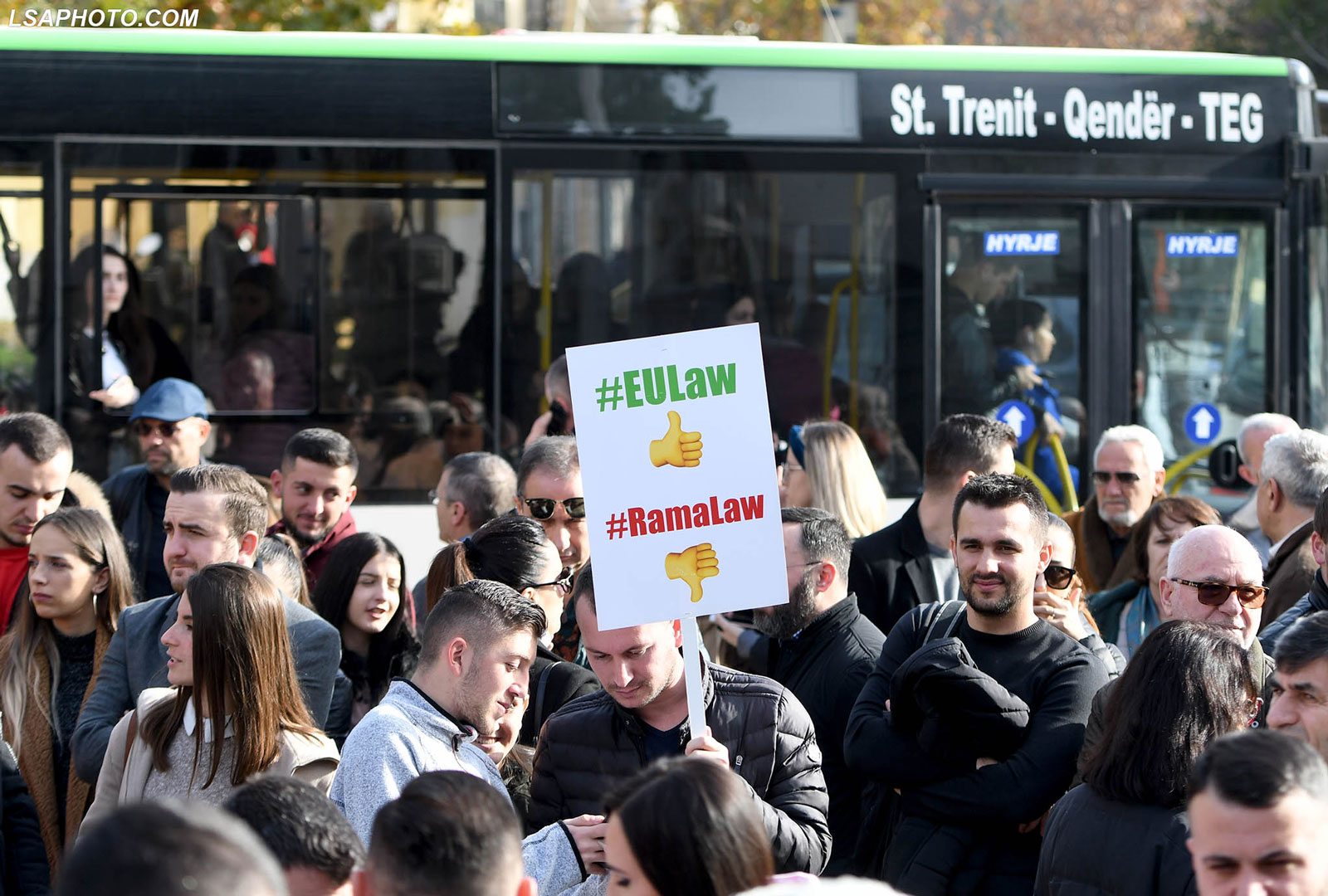
Fears grow over the state of media freedom in Albania after Edi Rama’s Socialist government pushed through laws that critics say will allow it to censor online media.
Albania’s adoption of controversial ‘anti-defamation’ media legislation flies in the face of its commitment to European Union values and reflects the Socialist Party government’s tightening grip on freedom of expression, media experts warn.
The government of Prime Minister Edi Rama says the package of laws, approved by parliament on December 19, is designed to protect individuals from unfounded online attacks, but rights groups and media experts say it will gift authorities far-reaching powers to censor online media.
Rama was unmoved by warnings from the European Commission – the executive arm of the EU, which Albania wants to join – as well as local and international media watchdogs and protesting journalists, telling parliament:
“The anti-defamation [package] is a necessity to protect individual rights and the ability to respond legally against public attacks on personal dignity or blackmail due to public service and entrepreneurship in the market, without breaching freedom of expression and the pluralism of sources of information.”
“I have had talks with the European Union and the Council of Europe,” he said, “and have told them, ‘You have not read the law you are talking about.’”
Rama’s critics, however, say such disregard for the complaints casts fresh doubt over his government’s democratic credentials. It also stands in stark contrast to his government’s stated aim of clinching accession talks with the EU – refused by the bloc in October – and the undented popularity of the bloc among Albanians for the past two decades.
The laws create a Complaints Commission within the Albania Media Authority with the power to review the content of online media outlets and levy heavy fines in the event that online media refuse to remove content that the commission deems questionable. Its adoption follows years of increasingly bitter complaints from Rama over media coverage of his Socialists, in power since 2013.
“Nobody should be in any doubt – with the approval of a law that incorrectly claims to be against defamation, Albania will have a censorship office for the media,” Albanian philosopher and communications expert Artan Fuga wrote on Facebook immediately following the approval of the law.
“It will be an office not a court that will judge the media and this office will have the power to oblige media to remove certain news. You can call it what you like, but this is simply a censorship office.”
Power to block sites without court order

Albania Prime Minister Edi Rama speaking in the parliament on 18 December. Photo: Gent Shkullaku/LSA
Albania has been a candidate for EU membership since 2014, but EU leaders – repeatedly overriding the recommendations of the Commission – have refused to open accession talks, most recently in October when French President Emmanuel Macron led opposition to launching negotiations with Albania and North Macedonia.
Despite the long wait and frequent refusals, Albanians remain overwhelmingly in favour of pursuing EU accession.
The EU and the Council of Europe, Europe’s main human rights forum, sought to use their leverage to get Rama to rethink the media legislation, but the EU’s leverage in particular in the Balkans has been weakened by the diminishing prospect of further EU enlargement in the foreseeable future.
Council of Europe Human Rights Commissioner Dunja Mijatovic expressed particular concern over the discretionary powers granted to regulatory bodies, “the possibility to impose excessive fines and to block media websites without a court order, as well as the introduction of state regulation of online media.”
Such powers, she said in a statement on December 19, “may deal a strong blow to freedom of expression and media freedom in the country.”
“It is of the utmost importance to ensure that the Internet remains an open and public forum and that self-regulation by the media, including online media, prevails.”
The European Commission said the laws did not fully reflect the recommendations of the Council of Europe and that it had “taken note” of their approval by parliament.
Will EU act?
Human rights lawyer Dorian Matlija of the Res Publica centre in Tirana said the legislation stood on shaky legal ground.
Looked at in the context of the entire European legal corpus on matters of freedom of speech, defamation and protection of dignity, he told BIRN, “this law is like a butcher with a machete readying for rough cuts.”
“Even the concept of what online media is, as defined in this law, is shaky,” Matlija said.
European parliamentarians joined the chorus of criticism. On the eve of the vote in Tirana, Swedish MEP David Lega, a member of the powerful centre-right European People’s Party bloc in the European Parliament, tweeted that the legislation “will seriously endanger the chances for opening of EU membership negotiations.”
Some local observers agreed.
“Albania has an obligation to have laws that are 100 per cent compatible with European standards and this latest piece of legislation surely deviates from that,” said Afrim Krasniqi, executive director of the Institute of Political Studies, a Tirana-based think-tank.
He warned that the move threatened to further undermine media plurality in Albania, citing the “quasi-monopoly situation that four family-owned television networks have in the market.”
But Gjergji Vurmo, a Tirana based EU expert and researcher for the US think-tank Freedom House, saw little indication that Brussels would actively confront Rama.
“The Commission doesn’t seem determined to oppose this,” he said.